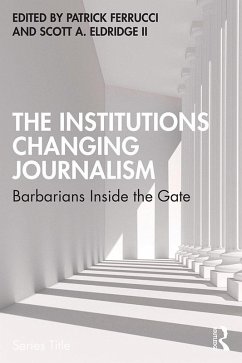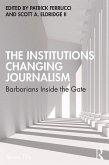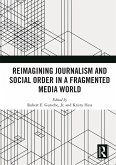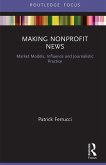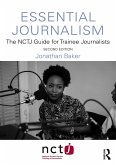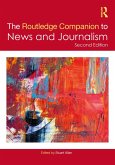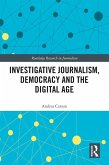Drawing from a diverse set of disciplinary and theoretical backgrounds, research paradigms and perspectives, and methodologies, each chapter explores different institutions currently impacting journalism, including government bodies, businesses, technological platforms, and civic organisations. Together they outline how cracks in the autonomy of the journalism industry have allowed for other types of organizations to exert influence over the manner in which journalism is produced, funded, experienced and even conceptualized. Ultimately, this collective work argues for increased research on the impact of outside influences on journalism, while providing a roadmap for future research within journalism studies.
The Institutions Changing Journalism is an invaluable contribution to the field of journalism, media, and communication studies, and will be of interest to scholars and practitioners alike who want to stay up to date with fundamental institutional changes facing in the industry.
Dieser Download kann aus rechtlichen Gründen nur mit Rechnungsadresse in A, B, BG, CY, CZ, D, DK, EW, E, FIN, F, GR, HR, H, IRL, I, LT, L, LR, M, NL, PL, P, R, S, SLO, SK ausgeliefert werden.
"This collection of essays grapples with a curious but highly consequential fact: since the advent of professional journalismat the turn of the twentieth-century, there has never been more news produced than today, and never less of it by journalists. Over eleven wide-ranging chapters, the authors investigate what happens when journalists who once were able to patrol the boundaries of their field now find themselves cheek-to-jowl with political activists, advertisers, nonprofits, university newsrooms, the "people formerly known as the audience," and technologists, among others. The result is an incisive exploration of how and why the institution of journalism has blurred in the twenty-first century. A must-read for anyone interested in the future of news and the role journalism might play in that future." - Professor David Ryfe, Professor of Journalism and Mass Communication, University of Iowa

